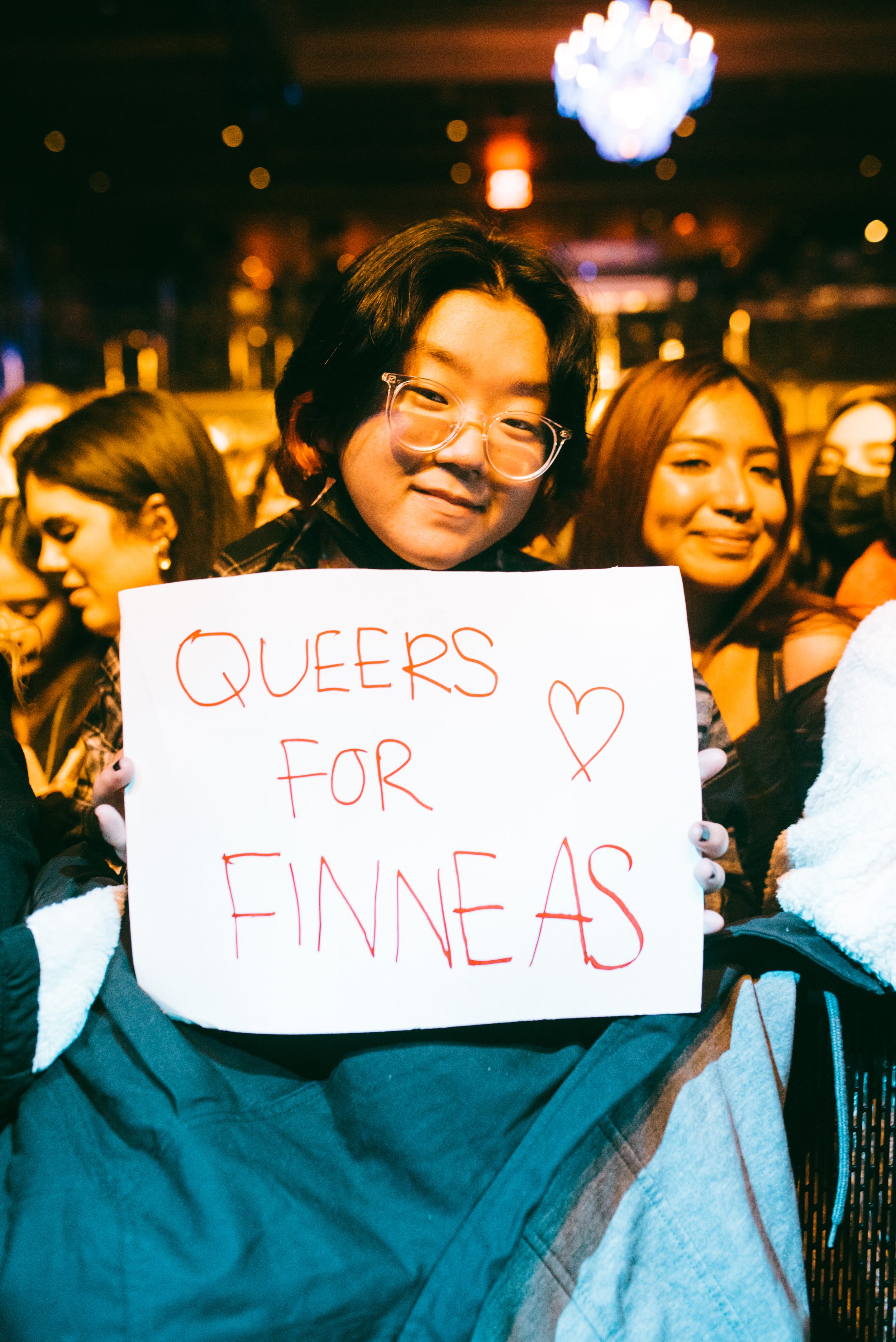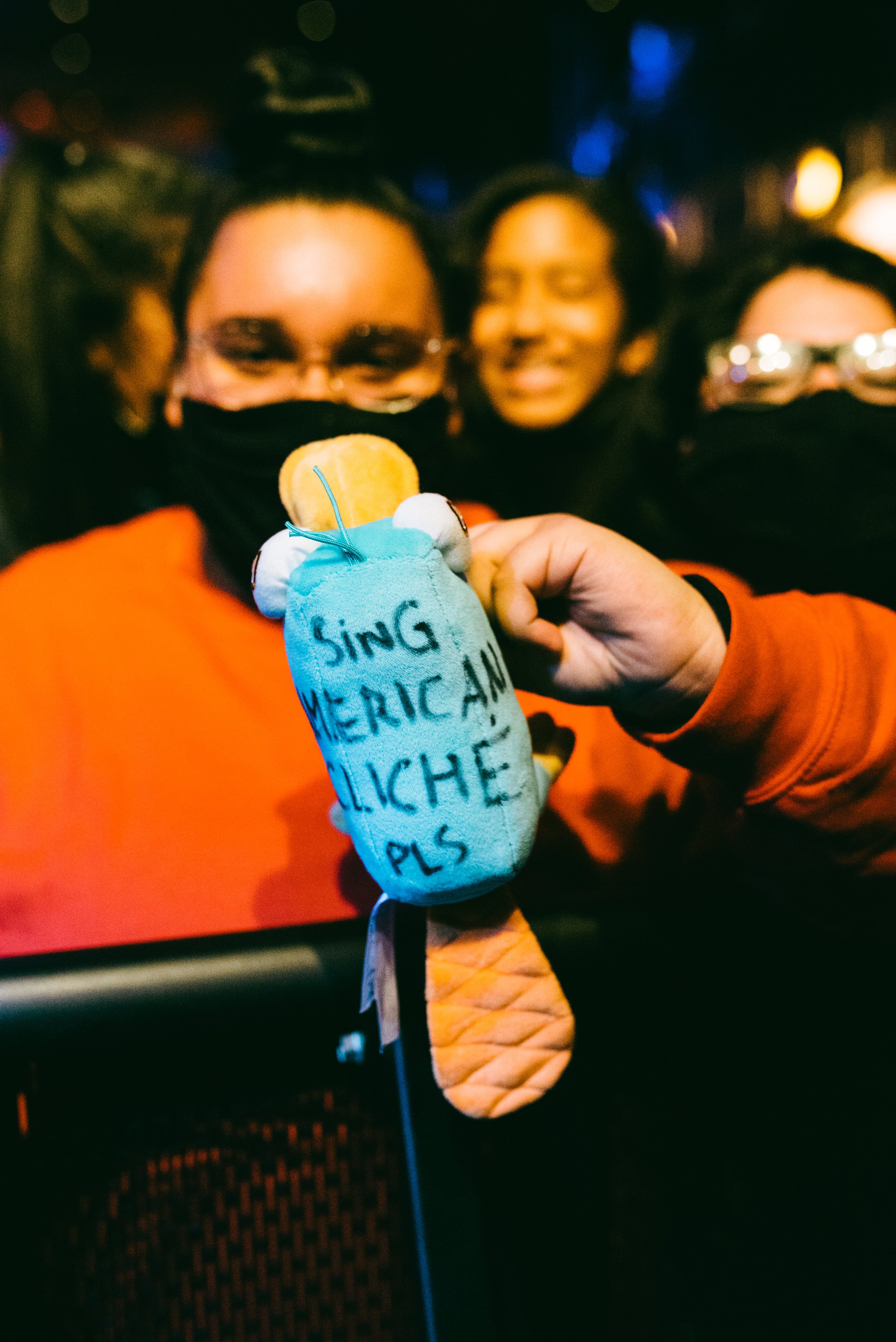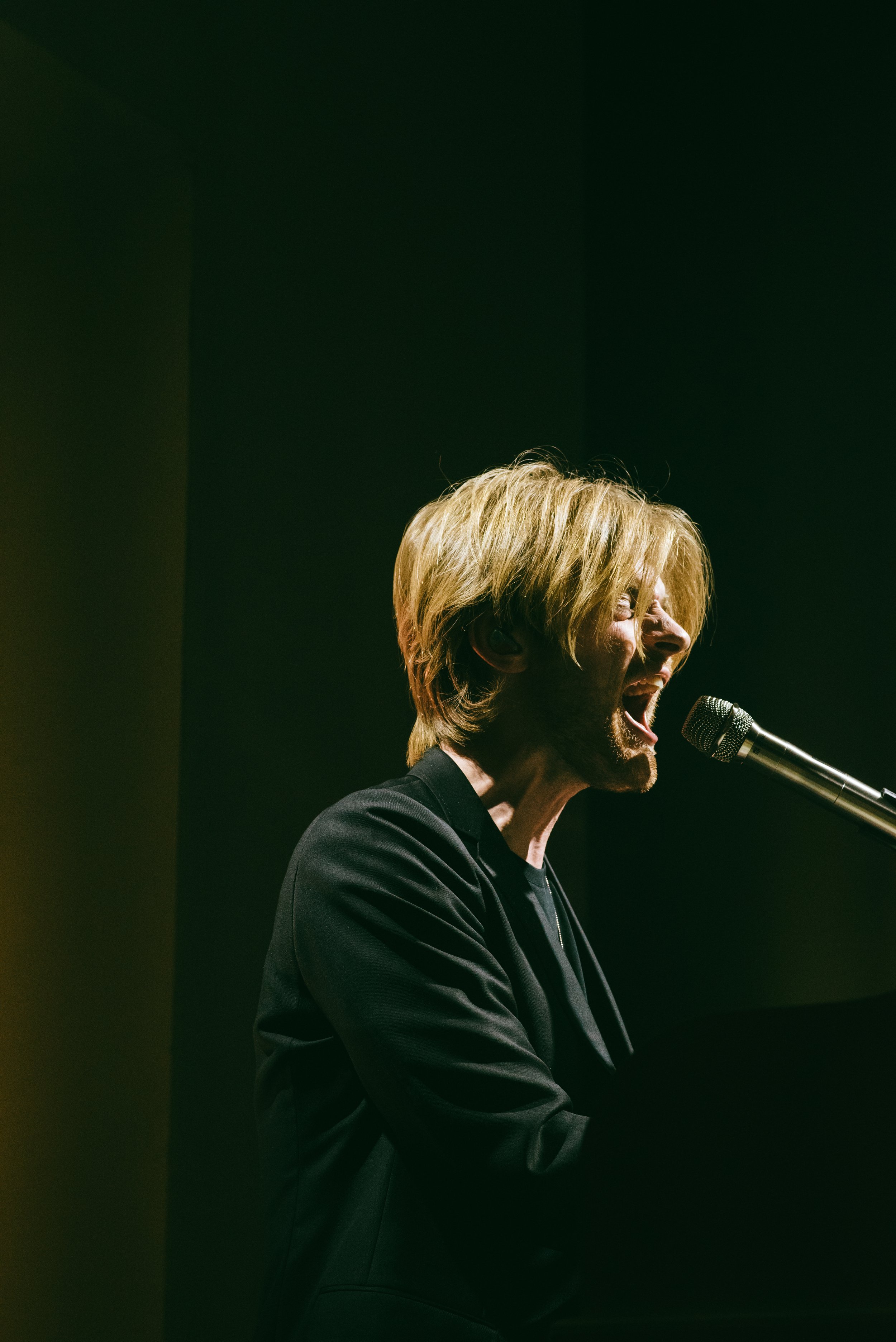Standing in the back of the venue, as it steadily filled with buzzing voices, I couldn’t quite place my finger on it. The atmosphere before Finneas’ first sold-out night at Irving Plaza was was fun, goofy, happy—quite different from his melancholy indie pop songs. I’m usually pretty good at describing emotions in my room or in myself, but this was stumping me.
Why did this room feel so exuberant?
It didn’t make sense to me.
Still unable to shake the mystery, I made my way to the front, to the pit, where I’d be shooting the first three songs of each set. While I’m up there, I get a front row seat, yes, to the artist, but also the crowd. Draped over the barricade was a pride flag. On the corner to my left, a bouquet of white hydrangeas was perched in someone’s hand. Held over the metal wall and into the air were signs with stars and hearts—and Finneas’ face, depicted as a photo and as a cartoon (think Phinehas and Ferb). At one point, the folks towards the front each held up their signs so everyone in the balcony and in the back could see them. They were met with laughter, cheers, and cameras. There was this joyful affection, but not in the overtly sexual way you see at some shows.
This was something else.
The crowd began singing the Phinehas and Ferb theme song and I could see two of the security dudes to my right—twice as big as I am and a little bit older—laughed at the commotion.
Have you ever heard of anything so wholesome?
As I sat—with admittedly terrible posture—against the barricade, I realized what it was. Much of the crowd is under 30 and likely sees a lot of themselves in Finneas’ sister Billie (Eilish). They feel seen, understood; they’ve found camaraderie in her willingness to say what she thinks, to wear what she likes, to continue changing herself and the world, no matter what.
And if you see Billie as your peer, if you see yourself reflected in her bright tees and tight corsets and blunt poetic lyricism, then it’s likely you also see Finneas as a sort of older brother to you, too.
It’s true to his online persona, making dad jokes on Tik Tok and hanging out with his girlfriend and dog.
Suddenly it all made sense.
Everyone felt safe to show up as their happiest, goofiest, nerdiest selves, to sing some sad songs together and in that, to make them some of the happiest songs.
I looked around again, at the upturned faces.
There’s space to be here.
There’s space to be here, to breathe here (no really, the security has made sure of it). Because if there’s one thing a good big brother does, it’s create space for you be yourself. It’s to set an example of speaking the truth, even if you’re still figuring it out. It’s to not being afraid of the hard feelings or hard conversations or hard possibilities—and to choose to love anyways. A good brother is honest and kind and brave and admits he’s still figuring it out, too. And the funny and beautiful thing about someone admitting they’re still figuring it out is it creates space for you to figure it out, too.
You’re safe to be here.
You can be yourself here: happy or sad, messy or best dressed, complicated and figuring it out. You can bring your art or your flag or your flowers and hold them above your head as you cry or as you dance. You can cry to a love song or dance to the hope of the end of it all but maybe, just maybe, tonight you’re okay in the in between.





























